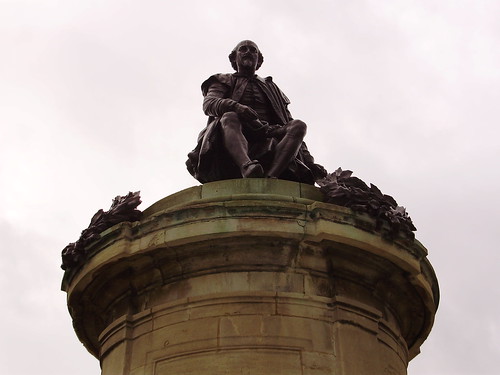Once an English major, always an English major. During a recent trip to Denver, I bought Charles Beauclerk‘s book about the authorship of the Shakespeare plays. Then, browsing in the Tattered Cover Bookstore along the 16th Street Mall, I found Contested Will: Who Wrote Shakespeare? by James Shapiro in which the author makes the argument for the man from Stratford as the author.
While questions about who really wrote Romeo and Juliet and Julius Caesar have been debated since the mid-19th century, the Internet is playing a role in the 21st century version. Shapiro suggests that the Oxfordians have made better use of the web. He may be right: take a minute to compare their Wikipedia pages. The Baconians are clearly lacking in detail compared to the Oxfordians. If you want a behind-the-scenes view of Wikipedia, check out the page devoted to the authorship question in general. It’s undergoing an overhaul and clicking on the Discussion tab will give you an idea of how Wikipedia works.
Since the historical evidence is pretty slim, being able to sway public opinion is an important piece of this debate. After some 500 years, opinion is probably more important than facts. Jasper Fforde imagines a world where Baconians go door to door to lobby for their theory. I imagine a world where most people simply don’t care. Hate to end on such a cynical note but the few people to whom I mentioned my current reading–even my old English teaching buddies–seemed to be stifling yawns and finding excuses to get away.
